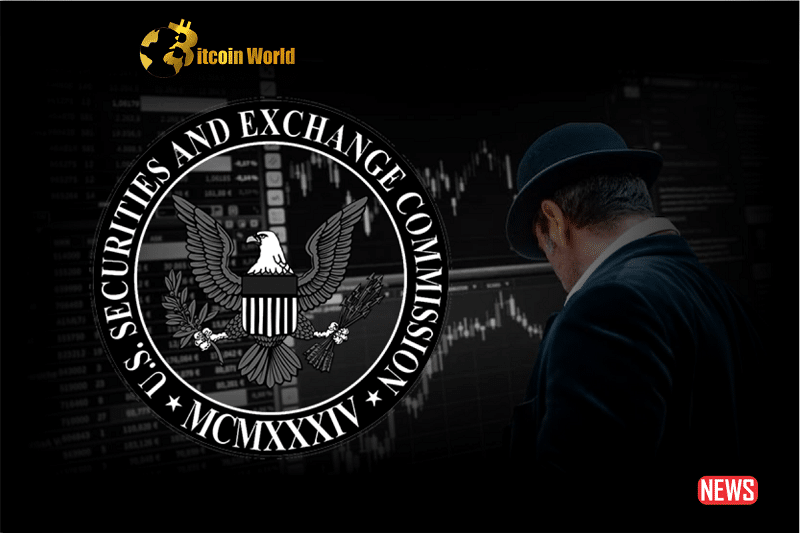The cryptocurrency world has been buzzing, and not in a good way for some. Imagine the floor suddenly dropping out from under you – that’s kind of what happened when the US Securities and Exchange Commission (SEC) recently dropped a bombshell. Several digital assets got slapped with the ‘security’ label, sending ripples (or rather, waves) of concern through the market. Among those feeling the heat were Algorand (ALGO) and Flow (FLOW), both hitting rock bottom, their all-time lows. So, what exactly went down, and who else got caught in the crossfire? Let’s dive in.
Price Plunge and a Glimmer of Hope: What Happened to ALGO and FLOW?
It’s never fun to see red in your portfolio. On June 10th, ALGO and FLOW holders felt that sting as their tokens plummeted to $0.098 and $0.46, respectively. That’s a hefty 30% drop in just one week, according to CoinGecko. Ouch! But here’s the silver lining: like a phoenix from the ashes (or at least a small spark), both tokens have shown some resilience.
- ALGO’s Recovery: A welcome 12.5% climb offered some relief.
- FLOW’s Rebound: Not far behind, FLOW bounced back by just over 10.5%.
While it’s still early days, these upticks offer a glimmer of hope. But what triggered this dramatic downturn in the first place?
The SEC’s Hammer: Why Were These Cryptocurrencies Targeted?
The SEC’s recent actions focused on major crypto exchanges, Binance and Coinbase. As part of these lawsuits, a whopping 16 additional cryptocurrencies were designated as securities. Talk about making a statement! Among the newly classified were FLOW and Internet Computer (ICP). Interestingly, ALGO had already been mentioned in an earlier SEC lawsuit against Bittrex in April, but it resurfaced in the Binance case. ICP also felt the pressure, dropping around 25% in a week and hovering precariously close to its all-time low.
Beyond ALGO and FLOW: Who Else Felt the SEC’s Impact?
The SEC’s reach extended beyond just Algorand and Flow. Several other prominent projects found themselves in the regulatory spotlight:
- Solana (SOL): A popular blockchain platform.
- Cardano (ADA): Known for its research-driven approach.
- Polygon (MATIC): A scaling solution for Ethereum.
These projects, while not hitting all-time lows like ALGO and FLOW in this instance, certainly felt the chill of the SEC’s actions.
Fighting Back: How Are Crypto Projects Responding to the Security Label?
Imagine being told your creation is something it’s not. That’s how many in the crypto space feel about the SEC’s security classification. The response has been far from silent. Let’s see how some of these projects are pushing back:
Polygon’s Global Stance:
Polygon Labs, the team behind MATIC, took to Twitter to emphasize a crucial point: their project was developed and launched outside the United States. They highlighted their global reach and made it clear that their activities weren’t specifically targeting the US market. This raises an interesting question: Where does regulation begin and end in a globalized digital world?
Solana’s Disagreement:
The Solana Foundation didn’t mince words, publicly disagreeing with the SEC’s characterization of SOL as a security. Their Twitter statement made their position clear – they don’t see eye-to-eye with the regulator on this.
Cardano’s Assertive Rebuttal:
Input Output Global (IOG), the driving force behind Cardano’s development, acknowledged the SEC’s definition of ADA. However, they didn’t stop there. IOG boldly stated that the SEC’s assessment contained numerous factual inaccuracies. Their firm stance is that ADA has never been, and currently isn’t, a security under US law. This highlights the fundamental disagreement on how these digital assets should be classified.
What Does This Mean for the Future of Crypto?
The SEC’s recent moves have undoubtedly injected a dose of uncertainty into the cryptocurrency market. The price volatility experienced by ALGO and FLOW serves as a stark reminder of the regulatory risks involved. While these tokens have shown some recovery, the long-term implications are still unfolding.
The defiant responses from projects like Solana, Cardano, and Polygon underscore the ongoing tension between regulators and the crypto industry. The core of the issue lies in defining what constitutes a security in the context of decentralized digital assets. This clash will likely continue to shape the regulatory landscape and influence the future trajectory of the cryptocurrency market.
For investors, this situation highlights the importance of staying informed and understanding the regulatory environment surrounding their investments. The journey of cryptocurrency regulation is far from over, and the path ahead promises to be filled with further developments and debates.
Disclaimer: The information provided is not trading advice, Bitcoinworld.co.in holds no liability for any investments made based on the information provided on this page. We strongly recommend independent research and/or consultation with a qualified professional before making any investment decisions.




